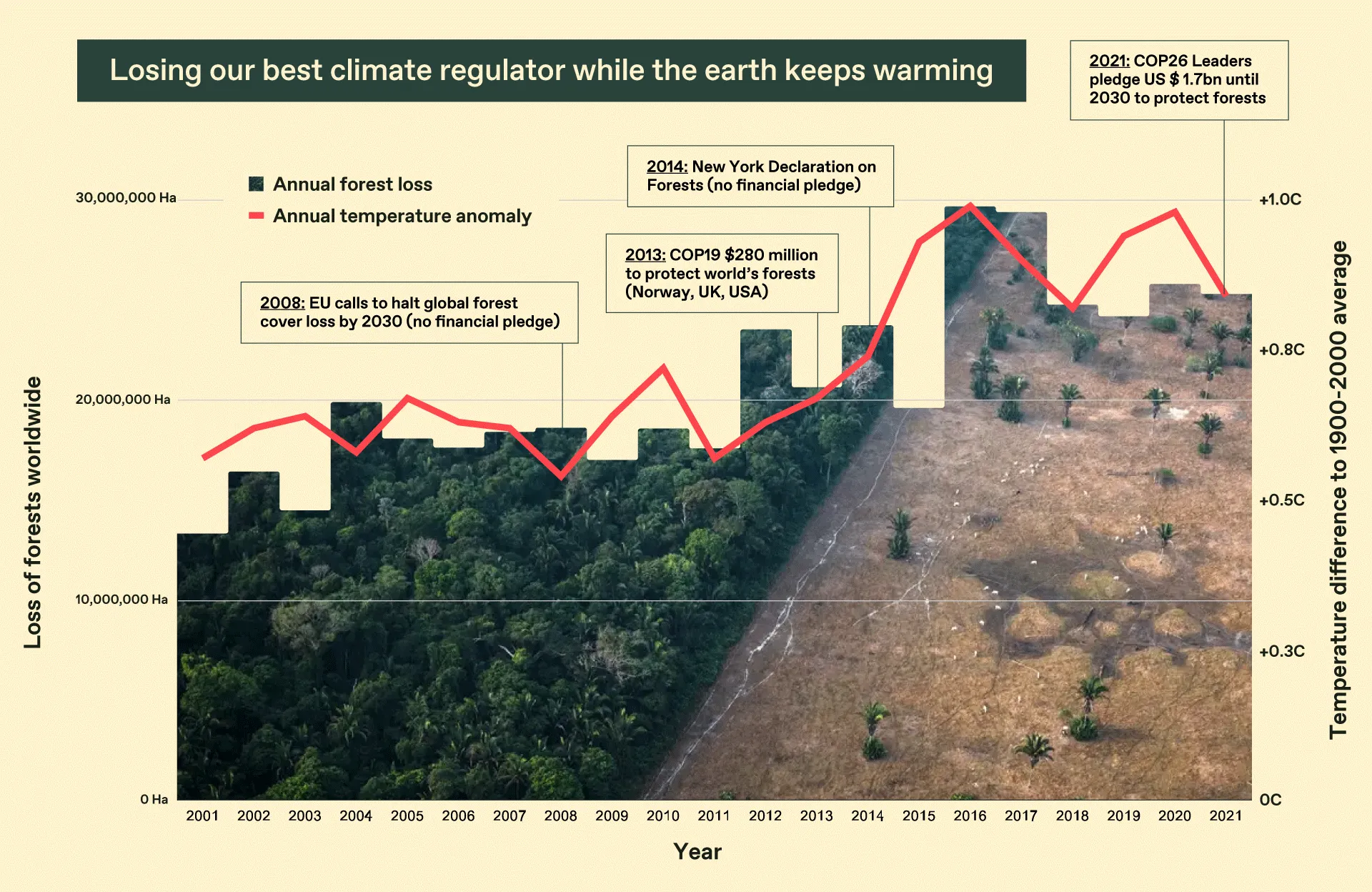COP 27
Five things that should take centre stage, but probably won't...
We are days away from COP 27 in Egypt. As we’re told every year, it’s the biggest climate event on the planet. Cue everyone talking about what to look out for, which event to attend, what the predicted outcomes will be, whether good or bad.
We’re bringing you five things we wish would take centre stage so that, for once, progress is made to tackle the biggest crisis we face.
1. Human rights in Egypt and beyond
Back in September, Cool Earth spoke at a basic income conference in Australia. At the beginning of each session, moderators acknowledged that we were meeting on the stolen lands of First Nations Australians. It’s not much of an active response to restore what’s been lost but the acknowledgment is a good first step.
Happening right now, human rights and environmental activists In Egypt are being harassed, spied on, and barred from travel as part of the relentless crackdown on civil society within the country.
How can climate negotiations occur in a country that suppresses environmental activism? These human rights violations have to be brought to light and publicly condemned.
2. Be bold on carbon taxation
A study of what gets prioritised and ignored at UN climate negotiations, since the first-ever COP in 1995, found that there has been little focus on cutting emissions from major polluting sectors.
Members at COP 27 need to show a much stronger stance on bringing down the biggest polluting sector, the fossil fuel industry. We all know that moving away from fossil fuels is the only way to curb the climate crisis. And yet, any action taken has been incredibly slow.
Just 100 companies are responsible for 71% of global greenhouse gas emissions, the majority being fossil fuel companies. We need to put a higher price on carbon emissions and internalise the environmental cost of burning fossil fuels.
Let’s be honest about Article 6 of the Paris Agreement on carbon credits. Stop wasting time building a market that will put a brake on progress and continue to fuel the crisis. Just tax carbon.
3. Strict fossil fuel exploration ban
The International Energy Agency (IEA) has explicitly called for a global end to the exploitation and development of all new oil and gas fields, and the building of new coal-fired power stations, if the world is to meet the goal of net zero emissions by 2050.
Many countries have come up with net zero commitments following previous COPs, but there is a large, and growing gap between government rhetoric and action. For example, how can the UK meet its climate targets and call itself an ‘eco-conscious’ country when we are allowing oil and gas companies to explore for fossil fuels in the North Sea?
Members of COP 27 need to agree on a strict ban on fossil fuel exploration if we are to limit global warming to 1.5°C in accordance with the Paris Agreement.
4. “Living in harmony with nature by 2050”
This could easily be the slogan of the UN Convention on Climate Change which organises COP 27 in Sharm El-Sheikh. But it’s not. It’s the slogan of the UN Convention for Biological Diversity which also holds its own COPs. In fact, there is one next month in Montreal (COP 15).
On the one hand, it is obviously good to showcase the need to protect biodiversity and give those working in that space the opportunity to come together. But we can’t tackle the climate crisis without tackling the biodiversity crisis and can’t tackle the biodiversity crisis without tackling the root causes of climate change.
What are the benefits of holding two separate COPs on inseparable topics? Rather than dealing with the bureaucracy of organising two events in different cities, within weeks of each other, why not focus on bringing them together – it would also give an opportunity to showcase biodiversity loss to a larger audience.
The climate crisis is incredibly multifaceted, and it is time we started including the wider, less highlighted issues at the well-known climate conference.
5. Go big on forests and support the people who live there!
No more empty pledges. There is no other option – we need action.
The US1$ 1.7bn until 2030 pledged in Glasgow last year is clearly not enough. We need billions going to halting deforestation every year to see the issue resolved.
We kick up a fuss about the British Prime Minister not attending COP 27 and too often make these talks inaccessible for the people that have been fighting the climate crisis on the frontline. Indigenous peoples and local communities will come with solutions, it’s what they do day in day out.
During our 15-year existence, working with and listening to indigenous and local leaders across the three biggest rainforest biomes, we’ve learnt one very important thing: the unimaginable power of no strings cash to people who live in the rainforest.
Their knowledge coupled with unlimited agency to shape the future of the rainforest must be at the heart of every rainforest protection initiative.

